Money: Good or Bad? (Part 3 of a Series)
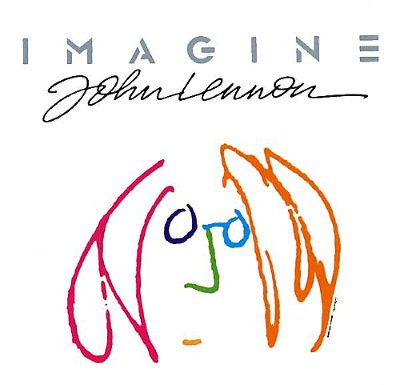
Some people imagine it to be progressive and enlightened to advocate doing away with money entirely. They don’t merely complain about the current system of currency, money and banking (which should be condemned and opposed); they want to get rid of all money. However, this idea ranks up there in starry-eyed obliviousness with the refrain, “Imagine no possessions.” That’s not enlightened. That’s just stupid.
(Paraphrased, “Imagine no possessions” means, “Imagine having no idea who has the right to use anything, ever.” Imagine that no matter how hard you work to produce something, it can be taken away at any time for any reason by anyone, because it’s not yours and you have no special claim to it. Yes, I can imagine that. It’s not pretty.)
The idea of no money sounds nice as long as you don’t actually think about it too much. Frankly, when I try to imagine why anyone would think such a thing, all I can come up with is irrational and emotional garbage, along the lines of, “I don’t have enough money to get what I want, and it must be the money’s fault; if only no one had money, everything would be free!” Indeed, communists often speak as if the mere existence of a medium of exchange (“money”) is enslaving them. It’s not fair, they say, that they should need money in order to survive. The ridiculous leap of logic (or leap away from logic) is assuming that somehow it would be easier to acquire things that other people produce if only you didn’t give them anything in return for it. It’s as if they think that having to pay for food that other people produce constitutes injustice and oppression, and that somehow, if only we threw all the money away, free food for everyone would just magically appear.
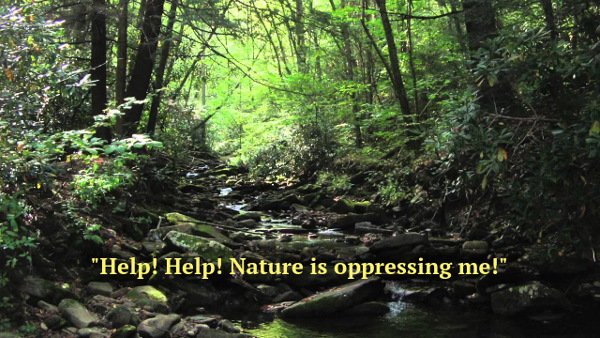
Most of what human beings need—food, shelter, etc.—requires human effort to harvest, process and/or manufacture. That’s just how reality is. There’s nothing unjust or unfair about it. When communists complain that it’s oppressive that they should be “forced” to work in order to have food and shelter, they seem to miss the fact that if they were alone in the woods, with no one to “oppress” them, they would still need to exert effort in order to avoid starving to death. They fail to notice that if they are entitled to certain necessities, and if those necessities require human effort to provide, that means that others should be forced to serve them.
If someone wants to benefit from someone else’s efforts, the choices are: a) stealing the fruits of their labor; b) hoping they give you free stuff, or; c) trading with them. The reason the concept of trade has been around forever, overcoming all manner of communication obstacles and cultural differences, is because, by its very nature, it is mutually beneficial. If both sides didn’t benefit, trade wouldn’t happen. To somehow think it would be more noble or progressive for only one side to benefit is, to be blunt, stupid.
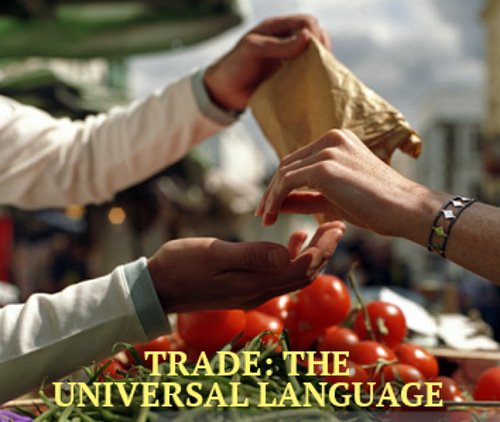
And to imagine that it is somehow more noble to get the fruits of someone else’s labor for free, rather than by trading something for it, is beyond juvenile. Yet some people, imagining themselves to be enlightened, advocate exactly that, calling it a “gift economy.” Of course, a society that recognizes the concept of private property also allows for charity and gifting. And the more prosperous the society is (as a result of trade), the more this will happen. But to think that all production and distribution of material wealth could happen exclusively via “gifting” is the result of profound ignorance of basic economics and human nature. Expecting everyone to get what they want because someone else just happened to produce it and give it to them, is a fine way to achieve mass starvation, and not much else.
Pretty much every species, down to one-celled organisms, exerts particular kinds of effort in order to achieve particular goals. They take certain actions in order to get certain things they want. This is a basic, self-evident truth of life. If you want a table, and don’t know how to make one yourself, the most natural thing in the world is to find someone else who has a table, and see if he will trade it for something (goods, services, etc.). Sitting around hoping someone will give you a free table for nothing (a la a purely “gift economy”) would be about the least efficient or effective method for acquiring anything.

And if you want to trade with someone who has a table, you will need to have something he wants. You might just happen to possess just the right object or skill to make a trade, and do a straight barter. Or you could make it a point to have a supply of something that almost everyone values. And there’s a word for that: “money.” Money, at its most basic essence, is just a common medium of exchange—something that everyone values, and everyone expects virtually everyone else to value. It could be silver or gold, or it could be almost anything else of which there is a limited supply, but a constant demand.
In fact, such trading is so natural that it not only occurs all over the world, across all cultures, but it even occurs even in the absolutely worst environment for it, where all trade and currency is strictly forbidden, and there is nearly no privacy and hardly any possessions. Namely, prison. In every federal prison in the U.S., all currency, trade, even gifting, is strictly against the rules. And in every federal prison in the U.S., despite people literally living in cages under constant surveillance, there is still a thriving “black market,” and decentralized, spontaneous forms of money. This might take the form of postage stamps, candy bars, or any other items in high demand. (When cigarettes were allowed in prison, they were often used as currency.)

Even in the most totalitarian environment, people find ways to trade, and they find ways to facilitate that trade using mediums of exchange, a.k.a. “money.” Since the entire purpose of having a medium of exchange—whatever form that might take—is to make it easier for people to trade, that means that being against money in principle amounts to being against trade in principle. What would be the value or virtue in saying, “I’m all in favor of voluntary exchange, as long as we don’t trade using things that almost everyone wants”? Frankly, it’s just plain idiotic to think that it would improve things to try to prevent the one thing that most facilitates voluntary cooperation and trade.
Of course, when a system of money involves fraud and deception, that is immoral and destructive. And that is true of “central bank” currencies all over the world, including Federal Reserve notes. But when someone blames the concept of money, or repeats the line about how “money is the root of all evil,” that person is just demonstrating his own ignorance, and demonstrating that he doesn’t actually understand what money is.
(As an aside, even a fiat currency can be moral and useful, as long as it functions openly and honestly, and in a way that isn’t continually leeching off the buying power from its users. Cryptocurrencies like Bitcoin, for example, only have value because people decide that they do. It is not “backed by anything” in that it doesn’t represent silver or gold. However, since “value” just means that people want it, it has value. And for trade, having a medium of exchange—even one that is just 1’s and 0’s inside computers—can be hugely useful.)
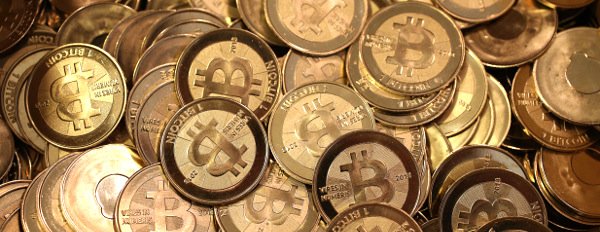
There are several enormously bogus concepts concerning wealth that a lot of people believe. For example, many imagine wealth to be a “zero sum game,” assuming that for one person to become rich, he has to make others less rich. In a free market, that is the opposite of the truth. A lot of people also falsely assume that “inequality” is inherently unfair and destructive (which I will address in an upcoming article). And a lot of people imagine that if people act out of self-interest, that leads to violence and poverty, but if they act out of altruism that makes us all prosperous. Again, that is the opposite of the truth.
A simple mental exercise shows how much trade, and even “greed” and “selfishness” (if not violent or fraudulent), greatly benefit everyone in society. Look around you, right now. Of the things you possess, or even just have access to, how many of them exist because others altruistically wanted to serve you? And how many exist because a lot of other people who don’t even know you were trying to benefit themselves through trade? Almost everything you have is the result of the latter.
You benefit from the “greed” of others, because when it comes to voluntary trade, someone who wants your money has to think of something to provide you with that you will want more than you want your money, so you will make the trade. He may be the ultimate cliche heartless, self-centered businessman, but in a free market, the way for him to enrich himself is to find a way to make you happy. And trade and money are essential to the process.
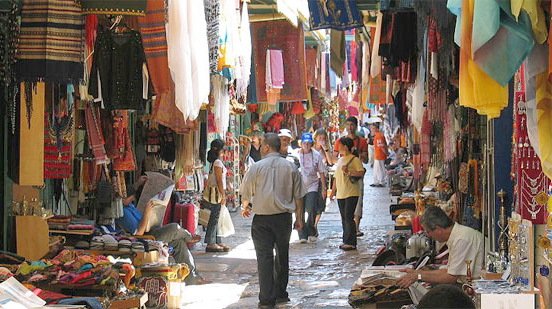
On a final note, several flavors of anti-property/anti-money ideas focus on the idea of a “post-scarcity” society, where everyone’s “needs” will somehow be met without trade or a medium of exchange. The “Venus Project” is one relatively recent version of this notion, based heavily on a centralized master plan in which a giant computer and robot system provides everything that humans need. However, the idea is once again based on a fundamental ignorance of reality. There can never all the way be a “post-scarcity” society.
There can be—and in fact already is—a situation in which a lot of necessities are so plentiful that, regarding certain things, it could almost be called “post-scarcity.” For example, in a lot of the world, running water is so plentiful that, in a lot of cases, people will give it away for free. And as a society gets more and more prosperous and productive, it becomes easier and easier for people to share or give away what belongs to them. People already share or give away food, water, electricity, internet access, even old computers, cars, and all sorts of other things. However, the dramatic level of material possessions that exist, exist entirely because of trade. Someone who has wealth to spare may give away an older car to someone who needs one, but who is going to manufacture a car for free for someone else?

There will always be limited supplies of certain types of things, and of particular objects. If several billion humans each want a pet pangolin, can they all have that? No, they can’t. If everyone wants the actual Mona Lisa painting, can they have it? No, they can’t. If there’s a cool house on top of a cliff overlooking the ocean, can everyone live there? No, they can’t. Even common items that are easy to mass produce will have a limited supply in any given place at any given time. If you want deviled eggs, kiwi fruit and marzipan, while taking a stroll in some park somewhere, can you suddenly have it? No, you can’t. And can everyone immediately and magically have an unlimited supply of whatever new things people think up and invent, that didn’t even exist before? No.
And as long as there are limited supplies of anything that people want—which will be the case forever—then there isn’t “post-scarcity,” and private ownership and trade will still be the best, most efficient, most effective, most moral way to create and distribute material wealth. And to try to do away with the concept which best facilitates trade—a medium of exchange, or “money”—is inherently counter-productive, to the point of being downright stupid.
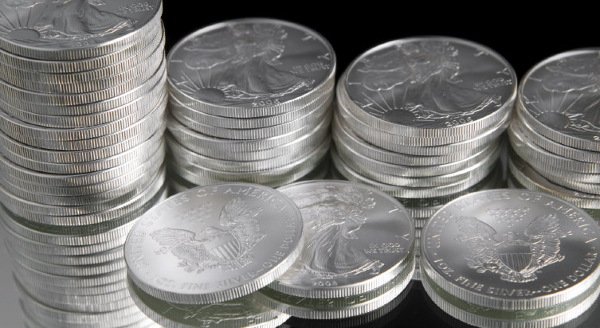
Resteemed!
bright post my friend @larkenrose excellent view congratulations
Let's Just Abolish The Interest On Interest!
EveryThing will flourish immediately...
Leaves all the power in the few hands that don't really care about this Planet anymore...
No. Not at all. Without interest nobody will lend money for new businesses and innovation. Interest is important. It just means that you value having something right now more than having it at some point in the future. If at all.
However I agree with you that all power lies in a few hands. Those are the people who are not locked in a cage if they lend money with interest or counterfeit money. Money in that case being the enforced legal tender. It is that inequality between those people's rights and ours that is the problem.
Nottin' 'gainst Interest!
Interest On Interest + Consideration of Exponential Functions should make it obvious...
The oldest Version Me could find is HERE.
A German Explanation Vid, unfortunately me didn't find an English translation....
P.S.: U can even Get FREE Bitcoins HERE EVERY Hour! ;) <3
This post has been linked to from another place on Steem.
Learn more about linkback bot v0.4. Upvote if you want the bot to continue posting linkbacks for your posts. Flag if otherwise.
Built by @ontofractal
Give the man a coin!
I'll preface this comment by saying that I don't support the wholesale abolition of money. But if you want to understand more of the rationale behind the anti-money perspective, the book "Debt: The First 5,000 Years" by the anthropologist David Graeber is a good place to start. (The book doesn't actually advocate the abolition of money, just has a historical analysis that can help you grasp the rationale of anti-money perspectives.)
I've LITERALLY seen leftists rationalize coercion by making the point that "nature is oppressive"...you are "oppressed" because you have to produce in order to consume...this is the kind of fucking insanity coming from the left these days...